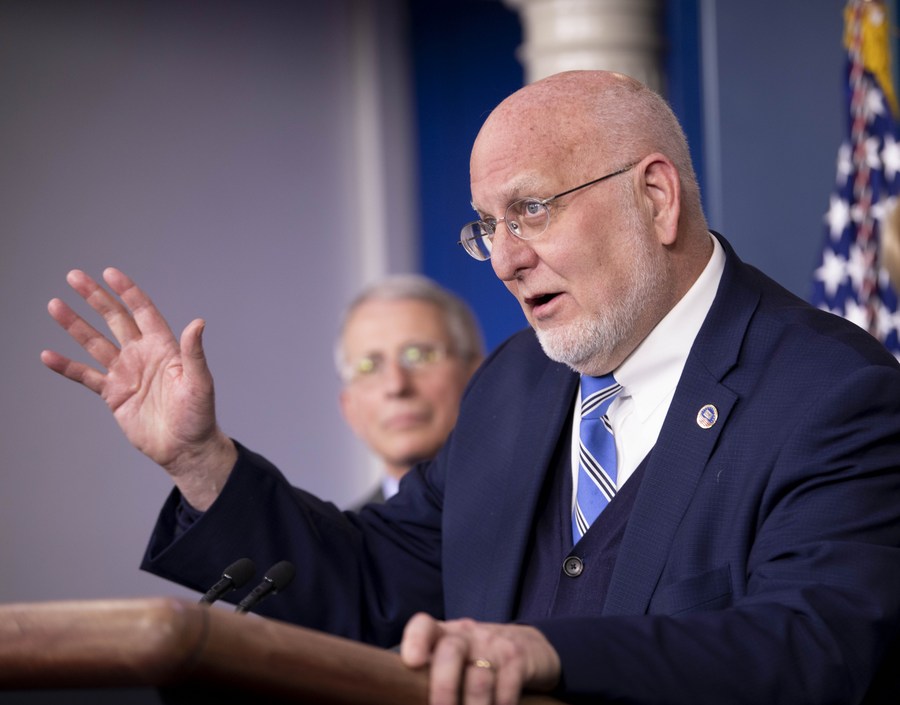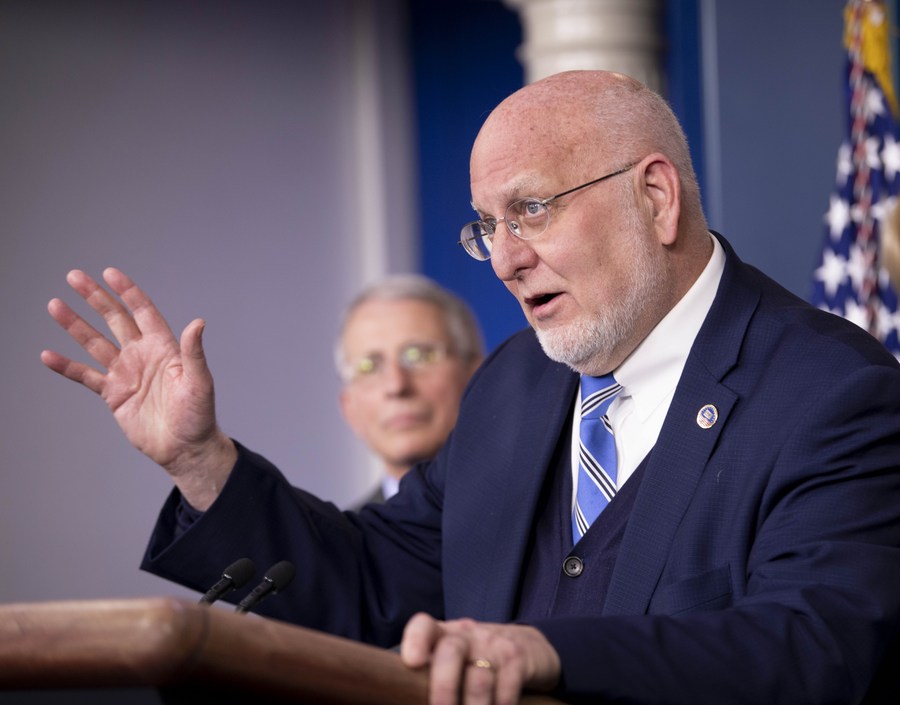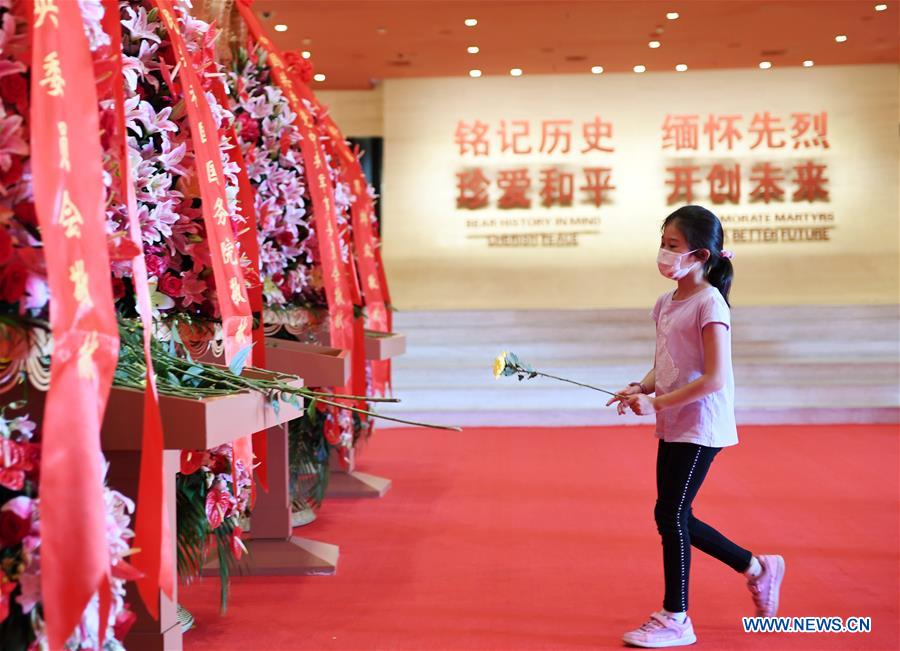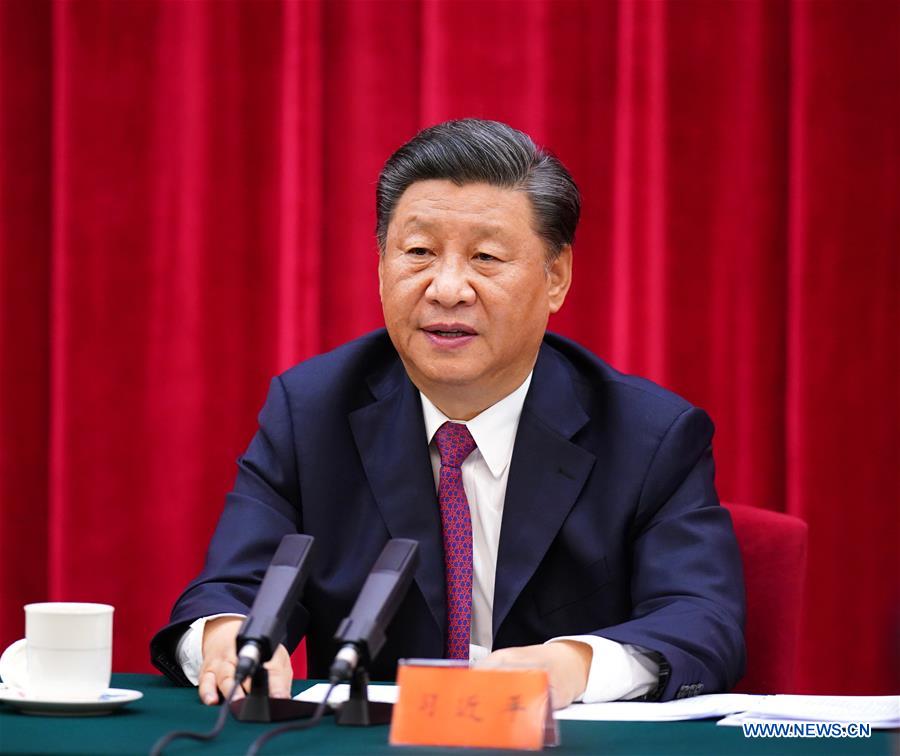
Director of the U.S. Centers for Disease Control and Prevention(CDC) Robert Redfield (front) speaks during a press conference with members of the White House coronavirus task force in the White House in Washington D.C., the United States, on March 2, 2020. (Xinhua/Liu Jie)
In light of some health experts' warnings that a vaccine likely would not be developed and approved before the end of 2020, some critics have accused the U.S. federal government of rushing the vaccine for political gains, as the Nov. 1 target date is two days before the presidential election.
WASHINGTON, Sept. 3 (Xinhua) -- The U.S. Centers for Disease Control and Prevention (CDC) has asked states to be ready to distribute a potential coronavirus vaccine by Nov. 1, according to a letter of CDC Director Robert Redfield reported by U.S. media on Wednesday.
In the letter to state governors and health departments on Aug. 27, Redfield said the McKesson Corporation and its subsidiaries would soon be applying for permits to build distribution sites. He asked governors to consider waiving requirements that would delay construction or opening the sites.
"The normal time required to obtain these permits presents a significant barrier to the success of this urgent public health program," Redfield was quoted by media as writing in the letter.
"CDC urgently requests your assistance in expediting applications for these distribution facilities and, if necessary, asks that you consider waiving requirements that would prevent these facilities from becoming fully operational by November 1, 2020," Redfield wrote.
Months into the pandemic, the United States has recorded more than 6.12 million confirmed COVID-19 cases and over 186,100 deaths by Thursday afternoon, according to a tally of Johns Hopkins University. The new plan indicates that the race for a COVID-19 vaccine may be picking up speed.
Several COVID-19 vaccines have already begun phase 3 clinical trials in the United States, including vaccine candidate AZD1222, co-invented by the University of Oxford and its spin-out company Vaccitech, vaccine candidate mRNA-1273, developed by the U.S. National Institute of Allergy and Infectious Diseases (NIAID) and American biotechnology company Moderna, and vaccine candidate BNT162b2, developed by American biopharmaceutical company Pfizer and German company BioNTech.













